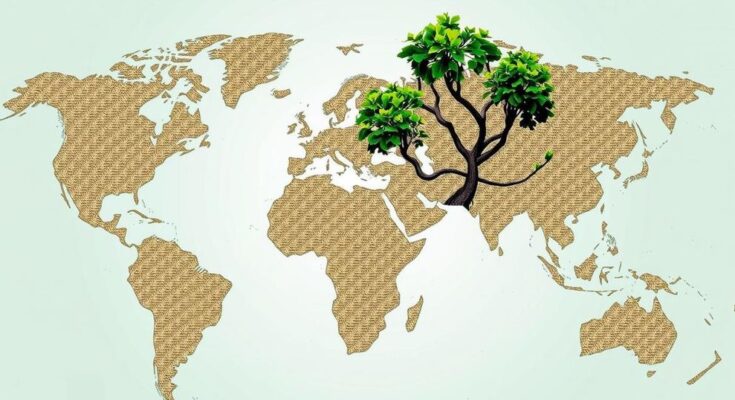The voluntary carbon market has been accused of failing human rights standards, as investigations reveal that prominent carbon projects often harm the communities they claim to support. Major projects in Kenya and Cambodia have been linked to abuses such as harassment and forced evictions, raising concerns about the accountability mechanisms in place. Organizations are calling for a reevaluation of this market to ensure that human rights protections are integrated into carbon offset practices.
The voluntary carbon market, designed to offset greenhouse gas emissions through financial transactions supporting conservation projects, is increasingly criticized for failing to uphold human rights. Investigations conducted by SOMO and Human Rights Watch reveal alarming trends wherein major carbon projects associated with this market have inflicted significant harm on the very communities they aim to support. Despite promises of accountability and high integrity, these projects have exhibited alarming practices, including human rights abuses and a lack of meaningful redress for victims.
Recent findings indicate that projects such as the Kasigau Corridor REDD+ and Southern Cardamom REDD+ have not only exaggerated their environmental benefits but have also been linked to serious abuses, including sexual harassment and forced evictions. The firms responsible for these initiatives, like Verra, have failed to ensure adequate protections and compensations for affected communities, raising concerns about the actual benefits of carbon credits.
The Kasigau project in Kenya was subject to numerous allegations of abuse, including sexual misconduct among its staff, while the Southern Cardamom project in Cambodia saw Indigenous peoples forcibly removed from their land. Although Verra has taken initial steps to suspend these projects, their reinstatement without thorough investigation calls into question the integrity of their processes. Moreover, responses from project managers claiming no misconduct go unchecked, emphasizing a systemic failure to hold violators accountable.
In essence, the voluntary carbon market is caught in a paradox; it aims to benefit marginalized communities while often perpetuating harm. As market actors align themselves with climate crisis solutions, the protection of human rights must become integral. Until substantial reforms occur, the integrity and effectiveness of this market will remain in serious doubt.
The voluntary carbon market emerged as a mechanism to allow organizations and individuals to offset their carbon emissions by investing in environmental projects that purportedly reduce greenhouse gas emissions. However, this market’s rise has been marred by controversies over the legitimacy of the carbon credits being sold. Investigations by human rights organizations have drawn attention to severe discrepancies between the promises made by these carbon projects and the real-life impact on local communities. Serious human rights abuses tied to these projects have surfaced, prompting calls for greater oversight and accountability within the market to ensure genuine benefits to the communities involved.
In conclusion, the voluntary carbon market faces significant challenges regarding its implementation and accountability concerning human rights. The evidence presented highlights a worrying trend where projects aligned with this market often cause harm to the very communities they are designed to assist. Moving forward, it is imperative that organizations like Verra enhance their scrutiny of project practices and prioritize the protection of human rights to restore integrity and trust within the voluntary carbon market.
Original Source: www.aljazeera.com




